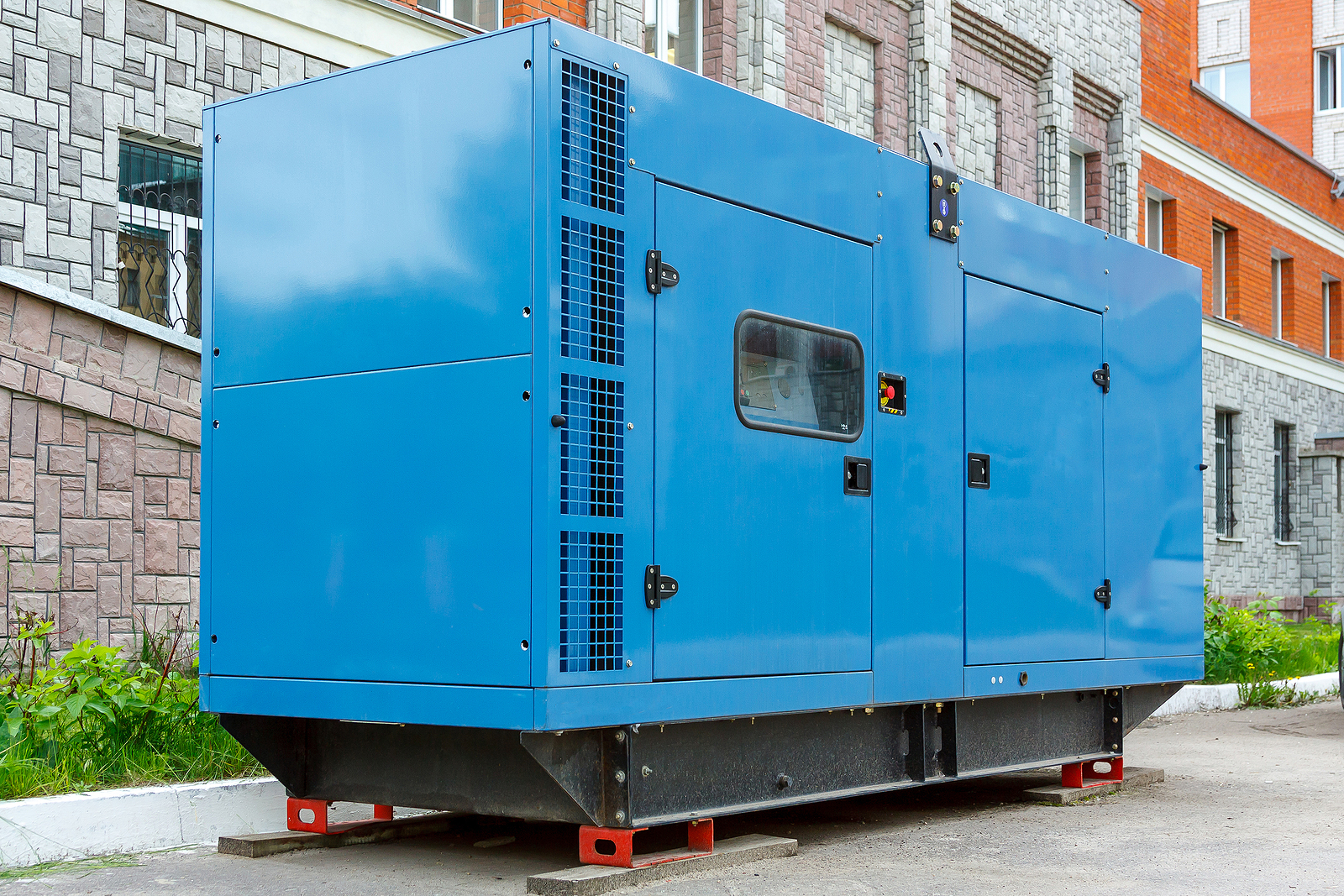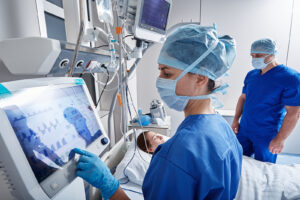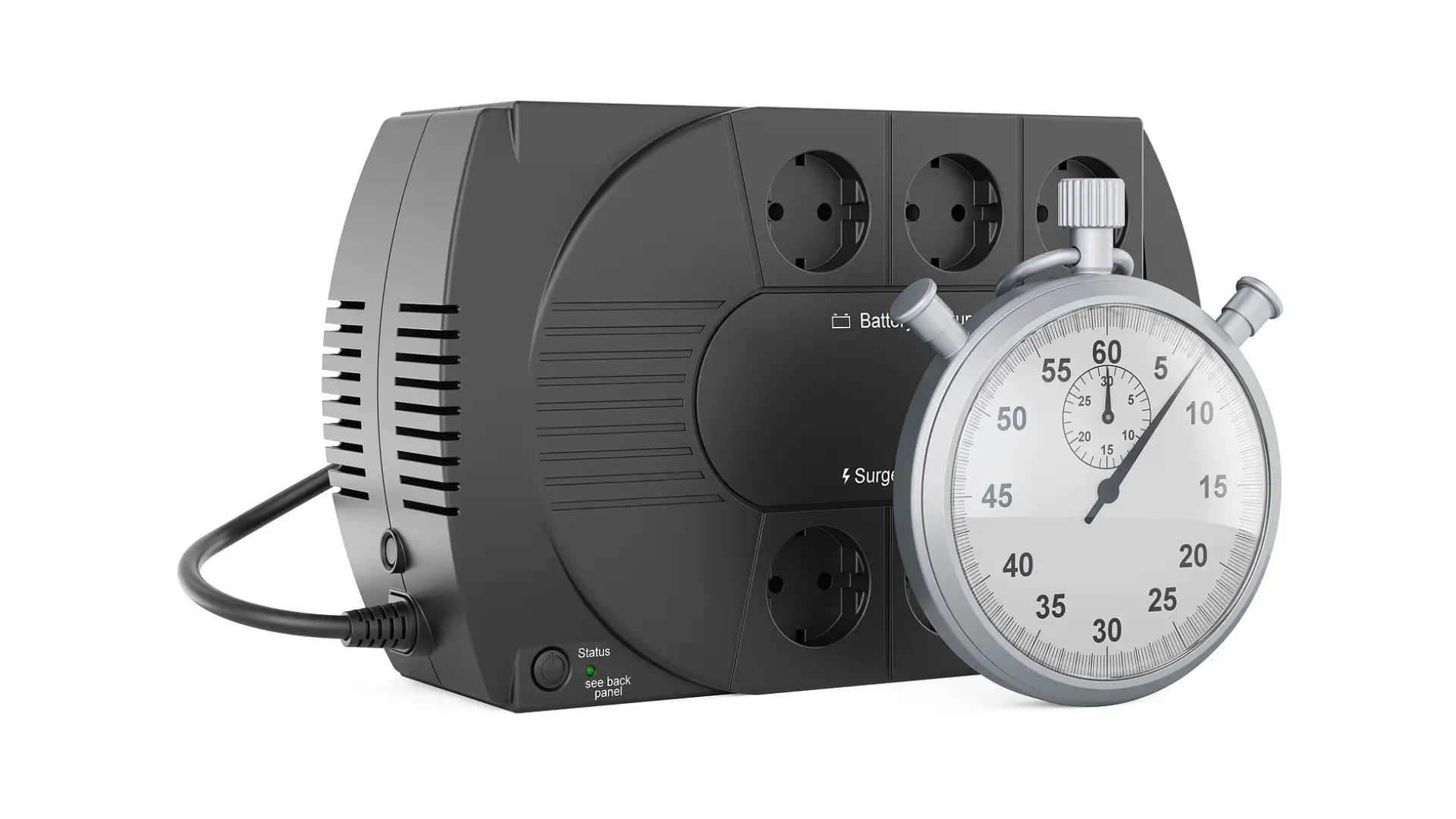
UPS for Medical Equipment: Uninterruptible Power Supply Ensuring Reliable Power for Critical Care
In the world of healthcare, every second counts. Whether it's a routine check-up or a life-saving surgery, medical professionals rely heavily on advanced equipment to provide accurate diagnoses and optimal patient care. In today's digital age, this equipment is more sophisticated than ever, making uninterrupted power a non-negotiable requirement.
Imagine a scenario where a hospital experiences a sudden power outage during a critical surgery, or a diagnostic machine shuts down unexpectedly due to a power surge. These situations are not only life-threatening but can also result in data loss, equipment damage, and costly downtime. To prevent such catastrophic events, healthcare facilities turn to Uninterruptible Power Supply (UPS) systems.
In this comprehensive guide, we will explore the critical importance of UPS for medical equipment, how they work, key features to consider, installation best practices, and much more. By the end of this article, you'll have a clear understanding of how UPS systems can safeguard the operation of medical equipment, ensuring patient safety and the smooth functioning of healthcare facilities.
The Vital Role of Uninterruptible Power Supply (UPS) in Healthcare
In the intricate and high-stakes realm of healthcare, precision and reliability stand as non-negotiable imperatives. The operation of critical medical equipment, such as Magnetic Resonance Imaging (MRI) machines, life-saving ventilators, and vital heart monitors, hinges on the assurance of a continuous and unwavering power supply.
Even the briefest of power interruptions or voltage fluctuations can set in motion a chain of events with potentially devastating consequences, including patient harm, equipment malfunction, and the irreplaceable loss of essential medical data.
Enter the Uninterruptible Power Supply (UPS) systems, a technological lifeline that plays a pivotal role in safeguarding the healthcare landscape. A UPS, in essence, acts as an indispensable power insurance policy, standing ready to deliver seamless and instantaneous backup power the moment a power outage or disturbance rears its disruptive head.
The significance of this technology transcends mere continuity; it serves as a guardian of healthcare facilities' ability to sustain uninterrupted patient care and preserve the integrity of invaluable medical data. In an industry where every second counts, UPS systems are the unsung heroes ensuring that medical practitioners can provide the highest level of care and that crucial patient information remains secure and accessible at all times.
Understanding How Uninterruptible Power Supply (UPS) Works
In order to comprehend the pivotal role of Uninterruptible Power Supply (UPS) systems in healthcare settings, it is imperative to delve deeper into their functioning. A UPS is a sophisticated apparatus comprising a battery and an inverter, and its operation can be elucidated as follows:
- Normal Operation: In the normal course of operations, the UPS operates in two simultaneous modes. Firstly, it continually charges its internal battery, ensuring that it remains at optimal levels of charge. Concurrently, it permits the incoming utility power to flow through to the connected medical equipment. This dual-functionality guarantees that the connected devices receive a consistent and stable power supply, which is indispensable for the seamless operation of healthcare equipment.
- Power Interruption Response: In the event of a power outage or any form of disruption in the incoming utility power, the UPS exhibits remarkable agility. It promptly detects the loss of utility power, virtually instantaneously, and immediately switches to battery power. This swift transition is executed within milliseconds, preventing any interruption in the supply of electricity to the connected UPS for Medical Equipment. This instantaneous response is critical in healthcare scenarios, where even a fraction of a second's interruption in power can have dire consequences.
- Inverter Functionality: At the heart of the UPS system lies the inverter, which performs a pivotal role during power outages. This component is responsible for the conversion of DC (battery) power back into AC power, which is the standard form of electricity used by the majority of medical devices. This transformation is indispensable to ensure the uninterrupted and seamless operation of healthcare equipment during power outages.
- Battery Runtime: The duration for which a UPS can supply power during an outage hinges on its battery capacity and the load it is supporting. UPS units are typically rated in volt-amperes (VA) or watts (W), and their runtime can exhibit significant variations based on the specific model and the size of the battery. Therefore, healthcare professionals and facility managers must take into account these factors when selecting an appropriate UPS system to meet their specific needs.

Selecting the Right UPS for Medical Equipment
The decision to choose the appropriate UPS for medical equipment is a mission-critical one that directly influences patient safety and the efficient functioning of healthcare facilities. To make an informed choice, it's essential to consider the following key aspects:
UPS Capacity and Runtime:
- Load Size Assessment: Begin by calculating the total power consumption, measured in watts, of all the medical equipment that will be connected to the UPS. This meticulous calculation is the foundation for selecting a UPS with a VA (Volt-Ampere) or W (Watt) rating that aligns with the equipment's power requirements.
- Runtime Determination: Assess the duration for which the medical equipment must remain operational on battery power during a power outage. This evaluation will dictate the size of the UPS battery bank needed to meet your specific requirements.
- Future Growth Planning: Envision potential additions of equipment to your healthcare facility, and factor in the UPS capacity accordingly. It is often more cost-effective to invest in a slightly larger UPS system upfront than to undergo replacement later when the facility expands.
Type of UPS Systems:
- Offline/Standby UPS: This type of UPS is suitable for safeguarding less critical equipment. It switches to battery power solely in the event of utility power failure, offering basic protection against power interruptions. However, it may not be the best choice for critical medical devices.
- Line-Interactive UPS: Line-interactive UPS systems are equipped with voltage regulation capabilities, providing enhanced protection against voltage fluctuations. They are a prudent choice for medical equipment that demands a stable power supply to function optimally.
- Online/Double-Conversion UPS: Renowned for their high-level protection, online UPS systems operate by continuously converting incoming AC (Alternating Current) power to DC (Direct Current) and then back to AC power. This process ensures a pure and stable power supply, rendering them ideal for sensitive and critical medical equipment that cannot tolerate power irregularities.
Redundancy and Scalability:
- Redundancy Implementation: Consider the criticality of redundancy in your UPS setup. Implementing redundant UPS systems can provide an additional layer of protection. In a redundant configuration, if one UPS unit encounters a failure, the other seamlessly takes over, preventing any downtime in the power supply to UPS for Medical Equipment.
- Scalability: Ensure that the chosen UPS system can accommodate the growth and evolving needs of your medical facility. Scalable UPS solutions are designed to allow for the addition of extra battery capacity or UPS units as needed, providing flexibility and adaptability to meet the changing demands of healthcare operations.
Installation and Maintenance Best Practices
Establishing a robust installation and maintenance regimen is pivotal once you've chosen the right UPS system for your medical equipment. The following guidelines encompass comprehensive information to uphold the efficacy and dependability of your UPS system:
Proper Location and Ventilation:
- Temperature Control: It is imperative to position UPS units within a controlled environment that maintains an appropriate temperature range. Excessive heat can have adverse effects, including reducing battery life and impairing overall UPS performance. Implementing effective temperature control measures, such as cooling systems, can mitigate these risks.
- Physical Security: Safeguard your UPS system from potential tampering or unauthorized access. Employ security measures, including locks and access controls, to ensure the integrity of your power infrastructure.
- Accessibility: Ensure that the UPS installation allows for easy access for maintenance and monitoring purposes. This accessibility facilitates swift response to issues and simplifies routine inspections.
Regular Testing and Maintenance:
- Battery Testing: Implement a regimen of regular battery testing to confirm their proper functionality. Batteries naturally degrade over time, and proactive testing and replacement can avert unexpected failures that may disrupt critical medical equipment operations. Battery testing should encompass capacity checks, internal resistance measurements, and load testing.
- Load Testing: Periodically subject the UPS system to load testing under real-world conditions. This ensures that the UPS can sustain the connected UPS for Medical Equipment for the requisite runtime during a power outage. Load testing helps identify any issues with the UPS's ability to deliver power as expected.
- Software Updates: Keep the UPS management software up-to-date to harness the full potential of your UPS system. Regular software updates facilitate remote monitoring and management capabilities, enhancing your ability to proactively identify and address potential issues.
- Remote Monitoring: In addition to software updates, consider implementing remote monitoring solutions that provide real-time visibility into the UPS's performance. Remote monitoring allows for immediate response to alarms or irregularities, even when staff is not on-site.
By adhering to these comprehensive best practices, you can extend the lifespan and bolster the reliability of your UPS system. This, in turn, ensures the continued protection of your critical UPS for Medical Equipment, minimizing the risk of disruptions that could compromise patient safety and healthcare facility operations. The careful management of your UPS system safeguards the integrity of your power infrastructure in the demanding healthcare environment.

Compliance with Regulatory Standards
In the complex landscape of healthcare, ensuring strict adherence to regulatory standards is of paramount importance. When it comes to uninterruptible power supply (UPS) systems, healthcare facilities must go above and beyond to meet and exceed industry-specific standards and guidelines.
This rigorous approach is not only essential for patient safety but also for preserving the integrity of critical healthcare data. Here is an expanded list of relevant standards and regulations that healthcare facilities should consider:
UL 60601-1
This standard, established by Underwriters Laboratories, is an overarching guideline for the safety and performance of medical electrical equipment. It encompasses a wide range of factors, including electrical safety, radiation emission, and immunity to electromagnetic interference. Compliance with UL 60601-1 ensures that UPS systems used in healthcare facilities are designed and constructed to meet the highest safety and performance standards.
NFPA 99
The National Fire Protection Association's NFPA 99 standard is a comprehensive document tailored specifically to healthcare facilities. Within NFPA 99, Chapter 6 outlines requirements for emergency power systems. These systems often involve the integration of UPS systems to ensure a seamless transition to backup power during critical moments. Adhering to NFPA 99 not only keeps healthcare facilities in compliance but also helps them stay prepared for unforeseen emergencies, enhancing patient safety and well-being.
HIPAA
The Health Insurance Portability and Accountability Act (HIPAA) is a federal law that mandates stringent data privacy and security measures in the healthcare sector. While not directly concerned with UPS systems, HIPAA underscores the importance of maintaining continuous power and data integrity. UPS systems are critical in preventing data loss and ensuring uninterrupted access to electronic health records, especially during power disruptions or outages. Compliance with HIPAA regulations emphasizes the role of UPS systems in protecting sensitive patient information.
ASHRAE 90.1
The American Society of Heating, Refrigerating, and Air-Conditioning Engineers (ASHRAE) Standard 90.1 sets energy efficiency standards for buildings, including healthcare facilities. Efficient UPS systems can contribute to energy savings and help healthcare organizations reduce their environmental footprint while maintaining reliable power.
ISO 9001
ISO 9001 is a globally recognized standard for quality management systems. While it may not be specific to healthcare, its principles of quality assurance and continuous improvement can be applied to UPS system maintenance and operation, ensuring their reliability and effectiveness in healthcare environments.
Real-Life Benefits of UPS in Healthcare Settings
The real-life benefits of deploying uninterruptible power supply (UPS) systems in healthcare settings are profound and have far-reaching implications for both patient care and operational efficiency. Let's explore these advantages in greater detail:
Enhanced Patient Safety
UPS systems play a critical role in ensuring patient safety by maintaining the continuous operation of essential UPS for Medical Equipment during power disruptions or outages. In emergencies, such as surgical procedures or life-support systems, uninterrupted power is paramount. UPS systems act as a reliable bridge, preventing potentially life-threatening consequences due to power interruptions.
Preservation of Data Integrity
The healthcare industry relies heavily on electronic health records (EHRs), diagnostic data, and imaging results. UPS systems are instrumental in safeguarding the integrity of this critical data. Sudden power cuts can lead to data corruption or loss, disrupting patient care, and potentially jeopardizing patient safety. UPS systems provide the necessary buffer to prevent data disruptions, ensuring that medical professionals have access to accurate and up-to-date information when making crucial decisions.
Significant Cost Savings
While UPS systems require an initial investment, they deliver substantial cost savings over time. By preventing downtime and protecting sensitive UPS for Medical Equipment from damage caused by power surges or fluctuations, healthcare facilities can avoid costly repairs, replacements, and lost revenue due to interruptions in patient care. In the long run, the cost of deploying and maintaining UPS systems is outweighed by the economic benefits they bring.
Streamlined Regulatory Compliance
The healthcare industry is heavily regulated, with stringent standards and guidelines aimed at ensuring patient safety and data security. UPS systems, when properly configured and maintained, simplify compliance with these regulations. They contribute to a healthcare facility's ability to meet the demanding requirements of agencies such as the Joint Commission, which mandates the maintenance of essential services during power disruptions. By relying on UPS systems, healthcare providers can confidently demonstrate their commitment to compliance with these rigorous standards.
Environmental Stewardship
UPS systems, particularly those designed for energy efficiency, can contribute to environmental sustainability. By reducing power consumption and minimizing the environmental impact of energy generation, healthcare facilities can align their operations with green initiatives and reduce their carbon footprint.
UPS for Medical Equipment: FAQs
What is a Uninterruptible Power Supply UPS for Medical Equipment?
A UPS for Medical Equipment is a device designed to provide a reliable and uninterrupted power source to critical medical devices and equipment. It safeguards against power interruptions, fluctuations, and surges, ensuring continuous operation of essential medical equipment.
Why is a UPS important for medical equipment?
Medical equipment often includes life-saving devices like ventilators, defibrillators, and monitors. A UPS is crucial to ensure that these devices remain operational during power outages or fluctuations, helping to maintain patient care and safety.
What types of medical equipment require a UPS?
Any medical device or equipment that is critical for patient care and relies on a consistent power source should be connected to a UPS. This includes but is not limited to ventilators, heart monitors, infusion pumps, diagnostic imaging machines, and laboratory equipment.
How does a UPS work?
A UPS stores electrical energy in its batteries and delivers it to connected equipment when there is a disruption in the primary power source. It acts as a bridge between the main power supply and the medical equipment, ensuring a seamless transition and preventing downtime.
What are the different types of UPS for medical equipment?
UPS systems come in various types, including offline/standby, line-interactive, and online/double-conversion. The choice depends on the specific requirements of the medical equipment and the level of protection needed.
How long can a UPS power medical equipment during an outage?
The runtime of a UPS during a power outage depends on factors like the UPS capacity, the load (the medical equipment's power consumption), and the battery capacity. UPS units are available with various backup times, so it's important to choose one that meets your specific needs.
How often should UPS batteries be replaced?
UPS batteries should be regularly inspected and replaced as needed to ensure reliable operation. The typical lifespan of UPS batteries is around 3-5 years, but this can vary based on usage and environmental conditions.
Can a UPS protect against power surges and voltage fluctuations?
Yes, many UPS units have surge protection and voltage regulation features to safeguard connected medical equipment from power spikes and fluctuations. This helps prevent damage to sensitive electronic components.
Are there any regulations or standards for UPS systems in medical settings?
Yes, there are standards and regulations, such as IEC 60601-1 for medical electrical equipment, that govern the use of UPS systems in medical settings. Compliance with these standards ensures the safety and reliability of medical equipment.
How do I choose the right UPS for medical equipment?
To choose the right UPS, consider factors like the power requirements of your equipment, the load size, the desired runtime during outages, and any specific regulatory requirements for medical devices. Consulting with a UPS expert or supplier can also be helpful in making the right choice.
Conclusion
Uninterruptible Power Supply (UPS) systems play an indispensable role in ensuring the continuous operation of critical UPS for Medical Equipment in healthcare facilities. They provide the power reliability needed to safeguard patient safety, maintain data integrity, and comply with regulatory standards. By carefully selecting the right UPS, following installation and maintenance best practices, and adhering to industry-specific regulations, healthcare providers can enhance the quality of care they deliver while minimizing the risk of disruptions.
Sources
https://www.usaid.gov/energy/powering-health/technical-standards/uninterruptible-power-supplies
continue reading
Related Posts
Uninterruptable Power Supplies In today's world, where technology keeps us […]
Uninterruptible Power Supply For Laptop In today's fast-paced digital world, […]
Small Uninterruptible Power Supply In today's digital age, where connectivity […]



